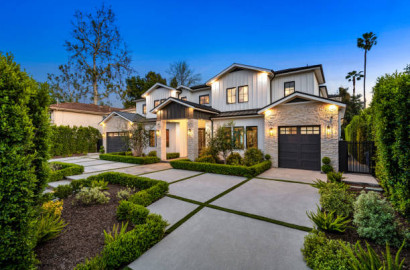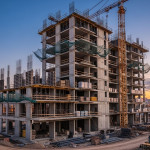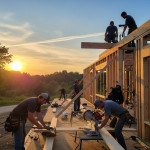
Choosing the right neighborhood to live in Nigeria is a significant decision that impacts your daily life, finances, and overall happiness. With diverse cities, cultures, and environments, Nigeria offers a wealth of options, from bustling urban centers to serene suburban areas. This blog post aims to guide you through the essential considerations and steps to take when selecting the ideal neighborhood for you and your family.
Nigeria is a vibrant country with a rich tapestry of cultures and communities. Whether you’re a young professional, a family with children, or a retiree, finding the right neighborhood can enhance your living experience and provide the amenities and atmosphere you desire. With the right approach, you can identify a neighborhood that aligns with your lifestyle and future goals. Let’s delve into the key factors to consider.
1. Identify Your Priorities
Before you start your search, take the time to outline what you need in a neighborhood. Consider these factors:
- Lifestyle: Are you looking for a lively urban environment or a quieter suburban area? Your lifestyle will influence your choice significantly.
- Commute: How far are you willing to travel for work or school? Consider both public transport options and traffic patterns in major cities.
- Amenities: Identify essential services like grocery stores, healthcare facilities, schools, and recreational spaces.
- Safety: Research crime rates and talk to locals about their experiences. Feeling secure in your neighborhood is paramount.
2. Research Online

In today’s digital age, leveraging online resources can make your search more manageable. Here’s where to start:
- Real Estate Platforms: Websites like PropertyPro.ng or NigeriaPropertyCentre.com provide listings and valuable data on properties and rental prices across various neighborhoods.
- Community Reviews: Use platforms like Google Reviews or local forums to read about experiences from residents. Social media platforms can also be a good source of information.
- Local Blogs and Influencers: Many bloggers share their experiences and insights about living in different Nigerian cities and neighborhoods, which can offer a unique perspective.
3. Explore the Neighborhoods

After narrowing down your options, it’s time to visit potential neighborhoods. Here are some tips for effective exploration:
- Visit at Different Times: Explore the area at various times of day to understand the neighborhood’s dynamics. Early mornings, afternoons, and weekends can all provide different insights.
- Walkability: Walk around the neighborhood to assess its walkability. Are there parks, restaurants, and shops within walking distance? A vibrant, accessible area can enhance your quality of life.
- Community Feel: Pay attention to community activities and local events. Engaging in these can help you gauge the spirit of the neighborhood.
4. Talk to Residents

One of the most effective ways to evaluate a neighborhood is to speak with its residents. Ask questions like:
- What do you love most about living here?
- Are there any challenges you face?
- How do you feel about the safety and community dynamics?
- How are the local schools and amenities?
Firsthand accounts can provide insights that statistics and reviews may not reveal.
5. Consider Future Developments
Understanding potential developments in the area can impact your decision significantly. Look into:
- Infrastructure Projects: Are there plans for new roads, public transport systems, or commercial centers? While development can boost property values, it may also increase traffic and noise.
- Community Services: Upcoming schools, hospitals, or recreational facilities can enhance the neighborhood’s appeal and livability.
6. Evaluate Educational Opportunities
If you have children or plan to in the future, the quality of local schools should be a priority. Research:
- School Rankings: Look for schools with good academic performance and extracurricular programs.
- Accessibility: Consider the distance and safety of the commute to schools.
Living in a neighborhood with reputable schools can positively affect property values and enhance your family’s educational experience.
7. Assess the Cost of Living
Finally, consider the overall cost of living in your chosen neighborhood. This includes:
- Housing Costs: Look at rental or purchase prices in the area and how they fit your budget.
- Utilities and Services: Research the average costs of utilities, transportation, and local taxes.
- Lifestyle Expenses: Factor in costs for groceries, dining, and leisure activities to ensure the neighborhood aligns with your financial situation.
Conclusion
Choosing the right neighborhood in Nigeria is a multifaceted decision that requires thoughtful consideration and thorough research. By identifying your priorities, utilizing online resources, exploring neighborhoods, and engaging with locals, you can make an informed choice that enhances your lifestyle. Remember, the right neighborhood will not only provide a place to live but also foster community connections and enrich your daily life. Take your time, enjoy the process, and soon you’ll find the perfect spot to call home in Nigeria!
Related posts:
It usually starts as a simple question, the kind people ask casually but think about deeply. Do you buy a car to make life easier now, or land to secure something bigger for the future? Both feel important. Both cost...
At some point in the home-buying journey, almost everyone faces the same quiet dilemma. Do you choose the order and structure of an estate, or the freedom and independence of a standalone house On the surface, the decision looks simple....


 Land or Car: Which One Should You Buy First?
Land or Car: Which One Should You Buy First?
 Living In An Estate vs Standalone Houses: Which One Is Actually Better?
Living In An Estate vs Standalone Houses: Which One Is Actually Better?
 Why Many People Start Building and Never Finish
Why Many People Start Building and Never Finish
 Should You Buy a Home or Build One? A Complete Guide to Making the Right Decision
Should You Buy a Home or Build One? A Complete Guide to Making the Right Decision
 The Best Places to Live in Lagos
The Best Places to Live in Lagos